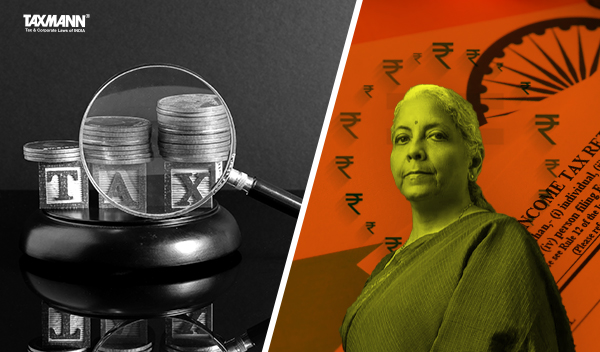[Opinion] The Transition From the Income-Tax Act, 1961 to the Income-Tax Bill, 2025 | An Analysis of Clause 536 of the Bill
- Blog|News|Income Tax|
- 2 Min Read
- By Taxmann
- |
- Last Updated on 5 March, 2025

Dr. Amit Kumar Kashyap & Yuvraj D Mitra – [2025] 172 taxmann.com 39 (Article)
1. Introduction
The repeal of a long-standing fiscal statute is an event of profound legal and administrative significance. With the Income-tax Bill, 2025, the Indian legislature has sought to usher in a new era of tax governance, aimed at efficiency, digital transformation, and simplification of compliance. However, the transition from the Income-tax Act, 1961, which has governed direct taxation for over six decades, presents unique challenges. A tax statute is not merely a set of fiscal prescriptions; it constitutes an entire ecosystem of substantive rights, procedural obligations, administrative mechanisms, and judicial precedents. The question that emerges, therefore, is this: what happens to liabilities, claims, disputes, and assessments rooted in the repealed legislation?
The answer lies in Clause 536 of the Income-tax Bill, 2025, which serves as the principal savings clause, ensuring that past transactions and ongoing proceedings under the 1961 Act are not abruptly invalidated. This provision codifies the fundamental legal doctrine that repeal does not automatically obliterate existing rights and obligations unless explicitly stated otherwise. The transition mechanism embedded in Clause 536 preserves the legitimacy of pending disputes, protects taxpayer entitlements, and provides a structured pathway for tax enforcement. This article critically examines the practical implications of Clause 536, contextualizing it within the broader contours of repeal and savings jurisprudence in Indian law.
2. Textual Analysis of Clause 536
The core of Clause 536(1) is an unambiguous declaration:
“The Income-tax Act, 1961 is hereby repealed.”
However, the repeal is not absolute but subject to the extensive savings provisions of Clause 536(2), which explicitly safeguards certain rights, liabilities, and procedural aspects from being extinguished. The provision states that the repeal shall not:
(a) affect the previous operation of the repealed Act and orders or anything duly done or suffered thereunder; or
(b) affect any right, privilege, obligation or liability acquired, accrued or incurred under the repealed Act or orders under such repealed Act.
This language reflects the principle of legal continuity, ensuring that transactions governed by the 1961 Act retain their validity even after its repeal. The Clause further provides those pending proceedings, whether at the assessment, appellate, or enforcement stage, shall continue to be governed by the old law.
A significant issue arising from the repeal is the treatment of income tax returns filed before April 1, 2026. Clause 536(2)(c) directly addresses this concern, stipulating that:
“The provisions of the repealed Income-tax Act shall continue to apply to any proceedings (including notices, assessment, re-assessment, rectification, penalty, reference, revision, and appeals) in respect of any tax year beginning before the 1st April, 2026 and such proceedings shall be carried out as per the procedure specified in the repealed Income-tax Act.”
This means that all returns filed for FY 2025-26 or earlier will remain within the jurisdiction of the 1961 Act, and any rectifications, revisions, or reassessments will be conducted under its provisions. This is particularly significant for taxpayers awaiting refunds or facing pending audits.
Click Here To Read The Full Article
Disclaimer: The content/information published on the website is only for general information of the user and shall not be construed as legal advice. While the Taxmann has exercised reasonable efforts to ensure the veracity of information/content published, Taxmann shall be under no liability in any manner whatsoever for incorrect information, if any.

Taxmann Publications has a dedicated in-house Research & Editorial Team. This team consists of a team of Chartered Accountants, Company Secretaries, and Lawyers. This team works under the guidance and supervision of editor-in-chief Mr Rakesh Bhargava.
The Research and Editorial Team is responsible for developing reliable and accurate content for the readers. The team follows the six-sigma approach to achieve the benchmark of zero error in its publications and research platforms. The team ensures that the following publication guidelines are thoroughly followed while developing the content:
- The statutory material is obtained only from the authorized and reliable sources
- All the latest developments in the judicial and legislative fields are covered
- Prepare the analytical write-ups on current, controversial, and important issues to help the readers to understand the concept and its implications
- Every content published by Taxmann is complete, accurate and lucid
- All evidence-based statements are supported with proper reference to Section, Circular No., Notification No. or citations
- The golden rules of grammar, style and consistency are thoroughly followed
- Font and size that’s easy to read and remain consistent across all imprint and digital publications are applied



 CA | CS | CMA
CA | CS | CMA
